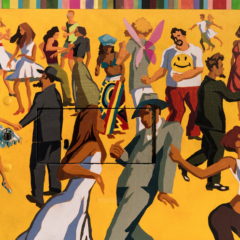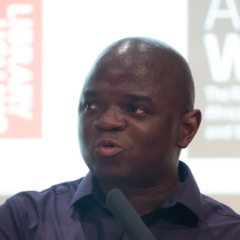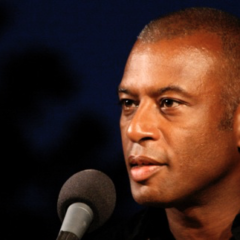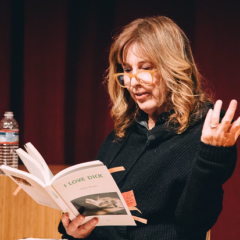Pandemic-Proofing Humanities Scholarship
Prof. Martin Eve (Birkbeck) recently delivered one of two keynote lectures at the CHASE Encounters Conference, which took place on 3–4 December 2020, hosted by Birkbeck, University of London. The biannual Encounters Conference is a chance for doctoral students to share ideas and research, build contacts and make networks across the eight institutions in CHASE: Sussex, Essex, Kent, UEA, Goldsmiths, the Courtauld, SOAS, and Birkbeck. Titled “Pandemic-Proofing Humanities Scholarship,” Prof. Eve’s lecture explores what the Covid-19 pandemic has revealed about our systems of academic publishing. Building on years of research in scholarly communications, Prof. Eve described the hidden infrastructures, labour and systems of preservation that make academic publishing possible but are frequently misunderstood by academics themselves. Analysing the exclusionary aspects of scholarly communications, Prof. Eve suggested that the histories of prestige that have shaped the publishing process (including peer review) are not as old or immutable as we might think. New modes of open publishing within the academy, he argued, make possible new kinds of engagement for humanities scholars. You can watch Prof. Martin Eve’s lecture below. Featured image by by Florian...
Encounters in the Cloud
Prof. Esther Leslie (Birkbeck) recently delivered one of two keynote lectures at the CHASE Encounters Conference, which took place on 3–4 December 2020, hosted by Birkbeck, University of London. The biannual Encounters Conference is a chance for doctoral students to share ideas and research, build contacts and make networks across the eight institutions in CHASE: Sussex, Essex, Kent, UEA, Goldsmiths, the Courtauld, SOAS, and Birkbeck. Titled “Encounters in the Cloud,” Prof. Leslie’s lecture offered a “meditation on the contours of the present and the possibilities and impossibilities within the encounter, as it is mediated by our devices.” Examining our “bizarre and exaggerated actuality,” Prof. Leslie traced issues such as artificially generated online identities used for social media presences (faces that are born and die continually within the cloud), alongside the Romantic aesthetics of cloud-as-possibility, storage space, and material cloud infrastructures in data centres. As Prof. Leslie notes in the lecture: “the vagueness of the cloud and its institutions is countermanded by the concretion of its infrastructure.” You can watch Prof. Leslie’s lecture below. Featured image by Jené Stephaniuk on...
Becoming Utopian Roundtable
Friday 29th January 2021, 6-8pm (online, booking required) In honour of Prof. Tom Moylan, Glucksman Professor Emeritus at the Ralahine Centre for Utopian Studies (University of Limerick), we're delighted to be hosting a roundtable discussion on the subject of "Becoming Utopian." Borrowed from the title of Tom Moylan's new essay collection, Becoming Utopian: The Culture and Politics of Radical Transformation (Bloomsbury 2020), the roundtable will be chaired by the CCL Director Dr Caroline Edwards, with Tom Moylan as respondent, and will feature Prof. Raffaella Baccolini (Dipartimento di Interpretazione e Traduzione, Università di Bologna), Heather McKnight (University of Sussex) and Dr Tim Waterman (The Bartlett School of Architecture, University College London). Becoming Utopian explores the dynamic relationship between the transformative utopian impulse and radical political action. It elucidates the utopian process through studies of sociopolitical theory and practice (utopian theory, ecological activism, nonviolence, radical pedagogy, community organizing), doing so with the help of critical theory, secular/post-secular hermeneutics, and the science fictional imaginary. While each chapter grows from the time it was written, each adds a facet to this contemporary prismatic exploration of utopian transgression and transformation. Developing his framework through a dialectical interaction with the problematics of Fredric Jameson and Ruth Levitas, Moylan focuses on the initial (utopian) political consciousness that develops out of a “break” (Badiou) with the hegemonic order and moves through a “gestalt shift” (Goodman and Perls) toward a horizon of a better world for humanity and nature. He traces the ways by which this utopian process produces new structures of feeling and formations (Williams) that can enable humanity to grow from alienation to action. Becoming Utopian offers a timely holistic reflection on how humans can confront and transform the conditions produced by the global environmental, economic, political, and cultural crises that beset us in this time of trouble. Below is a recording of the roundtable. Featured image by Tim Mossholder via...
Tade Thompson Q&A
We were thrilled to be joined by Tade Thompson, author of the award-winning Rosewater trilogy, for a special Q&A session with students studying on our MA Contemporary Literature and Culture and MA Creative and Critical Writing on 16th November 2020. We had studied Rosewater (2016), the first novel in the trilogy, as a recent example of what Natalia Cecire and Sam Solomon have termed the utopian “mycological promise” of fungi, in which natural, ancient, and magical energy systems convert decay and waste into nitrogen-fixing, plant-sustaining mycelium. Thompson’s trilogy depicts an alien fungal network known as Wormwood that is described as “protecting, nurturing” and is capable of miraculously healing, or worsening the conditions of, disabled people who visit it. Students explored Rosewater within the context of contemporary environmental posthumanism, as a narrative that deconstructs species boundaries between the human, the fungal, and the alien to offer an Afrofuturist speculative vision of what radical botanists and posthumanist theorists would call “becoming-plant,” reanimating the monstrous vegetal in contemporary ecocatastrophe narratives. A huge thank you to Tade for graciously offering his time after a full day's work during a very busy period of the Covid-19 lockdown! You can watch the full Q&A below, which was chaired by Dr Caroline Edwards and Dr Sean O'Brien, both lecturers at Birkbeck. Featured image by RAS News and Events shared under a CC BY-NC-ND...
Caryl Phillips Lecture
This year, Birkbeck is delighted to welcome acclaimed author and playwright Caryl Phillips to deliver the annual William Matthews Lecture. Titled ” ‘One Grim Winter Evening’: The Colonial Migrant in Britain,’ the lecture will take place on Thursday 12th November 2020, 6-7pm online. ‘One grim winter evening’ are the opening four words of Samuel Selvon’s classic novel, The Lonely Londoners (1956). As Phillips writes: “Selvon’s depiction of London as both hostile and a place that his characters hold dear in their hearts, always puzzled me. I grew up as part of a generation who were quick to reject Britain’s negative attitudes towards her non-white population. We were ‘radical’ and quick to push back, while the earlier generation appeared to be stubbornly determined to belong. I will look again at this postwar migration from the colonies into a not always welcoming Britain, and think about how this colonial migration differed from political or economic migration.” Caryl Phillips was born in St. Kitts and came to Britain at the age of four months. He grew up in Leeds, and studied English Literature at Oxford University. He began writing for the theatre and his plays include Strange Fruit (1980), Where There is Darkness (1982) and The Shelter (1983). He won the BBC Giles Cooper Award for Best Radio Play of the year with The Wasted Years (1984). He has written many dramas and documentaries for radio and television, including, in 1996, the three-hour film of his own novel The Final Passage. He wrote the screenplay for the film Playing Away (1986) and his screenplay for the Merchant Ivory adaptation of V.S.Naipaul’s The Mystic Masseur (2001) won the Silver Ombu for best screenplay at the Mar Del Plata film festival in Argentina. His novels are: The Final Passage (1985), A State of Independence (1986), Higher Ground (1989), Cambridge (1991), Crossing the River (1993), The Nature of Blood (1997), A Distant Shore (2003), Dancing in the Dark (2005), Foreigners (2007), In the Falling Snow (2009), The Lost Child (2015), and A View of the Empire at Sunset (2018). His non-fiction: The European Tribe (1987), The Atlantic Sound (2000), A New World Order (2001), and Colour Me English (2011). He is the editor of two anthologies: Extravagant Strangers: A Literature of Belonging (1997) and The Right Set: An Anthology of Writing on Tennis (1999). His work has been translated into over a dozen languages. He was named Sunday Times Young Writer of the Year in 1992 and was on the 1993 Granta list of Best of Young British Writers. His literary awards include the Martin Luther King Memorial Prize, a Guggenheim Fellowship, a British Council...
Writing Shame
Birkbeck is delighted to welcome Dr Kaye Mitchell (University of Manchester) for the first Bloomsbury Research Lecture of the year. Dr Mitchell will talk about her recently published book Writing Shame: Gender, Contemporary Literature and Negative Affect (Edinburgh University Press, 2020). Through readings of an array of recent texts – literary and popular, fictional and autofictional, realist and experimental, this book maps out a contemporary, Western, shame culture. It unpicks the complex triangulation of shame, gender and writing, and intervenes forcefully in feminist and queer debates of the last three decades. Starting from the premise that shame cannot be overcome or abandoned, and that femininity and shame are utterly and necessarily imbricated, Writing Shame examines writing that explores and inhabits this state of shame, considering the dissonant effects of such explorations on and beyond the page. About the Author: Dr Kaye Mitchell is Senior Lecturer in Contemporary Literature and Co-Director of the Centre for New Writing at the University of Manchester. She is a literary and cultural critic with particular interests in modern and contemporary literature, literary theory, gender and sexuality studies, and experimental writing by women. She has published books on literary intention (Intention and Text, Continuum, 2008) and contemporary literature (A.L. Kennedy, Palgrave, 2007; Sarah Waters, ed. collection with Bloomsbury, 2013). Her work in progress includes a monograph on the politics and poetics of shame in contemporary literature, and a special issue on women's experimental writing for the OUP journal, Contemporary Women's Writing. Kaye Mitchell's research is mainly in contemporary literature and culture, with a particular focus on gender and sexuality, critical theory and narratology. The lecture will take place from 7.30pm on Thursday 29th october 2020. Please click on this link to join. Featured image: Chris Kraus in Conversation with Kim Dower by WeHoCity under a CC BY-NC-ND...









Recent Comments